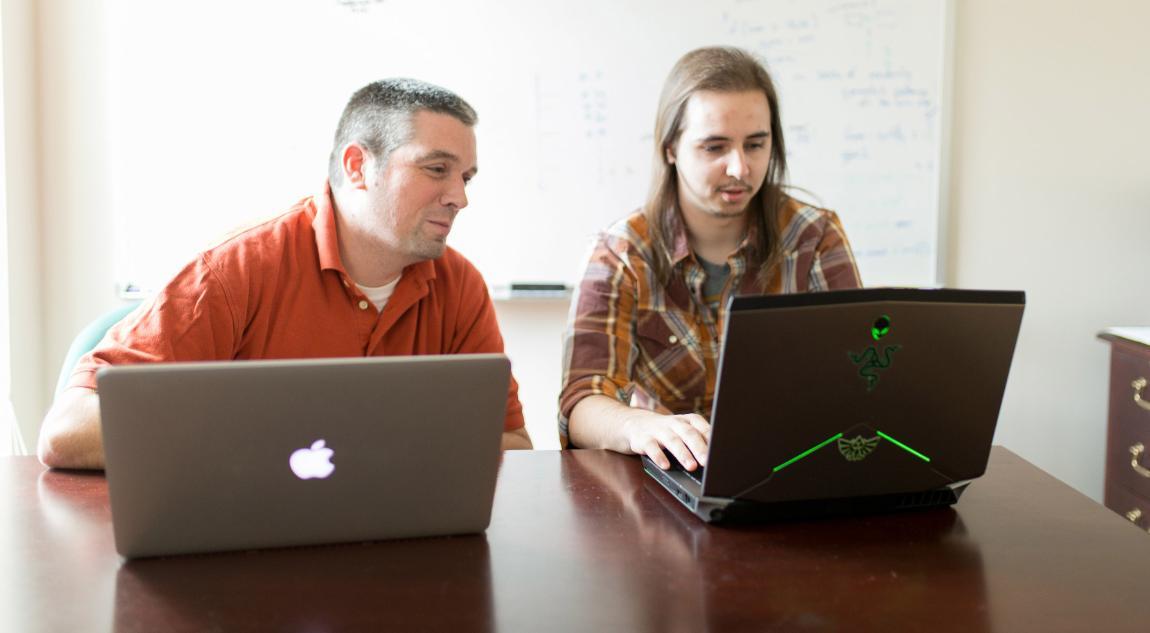

Matthew Dyer ’18 is crunching a dizzying amount of data this summer with the hope that his research could one day help in combatting lung cancer.
The Longwood University computer science major is working to create a fast, accurate computer program to help biologists whittle down and identify, from a potential pool of thousands, the specific genes related to fibrosis, which is thought to cause lung cancer. Ultimately the research, which is part of Longwood’s PRISM program, might help pave the way for early testing for fibrosis.
Dyer and his research partner, Dr. Julian Dymacek, assistant professor of computer science, have already figured out how to save time while maintaining accuracy in the laborious process of testing thousands of genes. The trick has been the simultaneous use of 20 computers in one of Longwood’s advanced computing labs. Using this method, known as distributed computing, they have cut testing time by at least 90 percent—testing 5,000 genes now takes 27 seconds instead of the 4-1/2 to 5 minutes required previously.
“Using multiple computers is a different way of thinking and was challenging at first,” said Dyer. “You have to think about what all of the computers are doing and synchronize all of the data, but it’s been rewarding to cut the time so drastically. Seeing tangible results in real time is exciting.”
Some people wonder what computer science is. I call it the science of problem solving.
Matthew Dyer ’18
Dymacek, who described Dyer as a “quick study,” said distributing computing is so new that they came up with the faster process mostly through trial and error.
“There are only a few books on MPI, the kind of system of distributed computing we used. Our basic method was to brainstorm about ways we could tweak our system, keeping the good and tossing the bad,” Dymacek said.
After first using an experimental dataset the researchers created, to test the accuracy of their algorithm, they have been examining biological data on fibrosis-related genetic expression from the National Institute of Occupational Safety and Health in Morgantown, West Virginia. This summer’s PRISM project is a continuation of ongoing research Dymacek began in graduate school at West Virginia University and followed through to his dissertation.
“We’re trying to find the genes most correlated to a particular pattern so we can identify the genes involved in this disease,” he said. “We’d love to have the ability to test earlier for fibrosis and lung cancer because early detection always improves outcomes.”
Dyer, from Nathalie in Halifax County, shares his professor’s love of research. He plans to attend grad school, then pursue a research career. He plans to study either computer science or bioinformatics, also called “computational biology,” which uses computer programming to analyze and interpret biological data.
“I like how computer science and biology can work together,” he said. “Computational biology is an interesting field. It’s a different way of looking at computer science—a marriage of the virtual world and the real world. …Some people wonder what computer science is. I call it the science of problem solving.”
